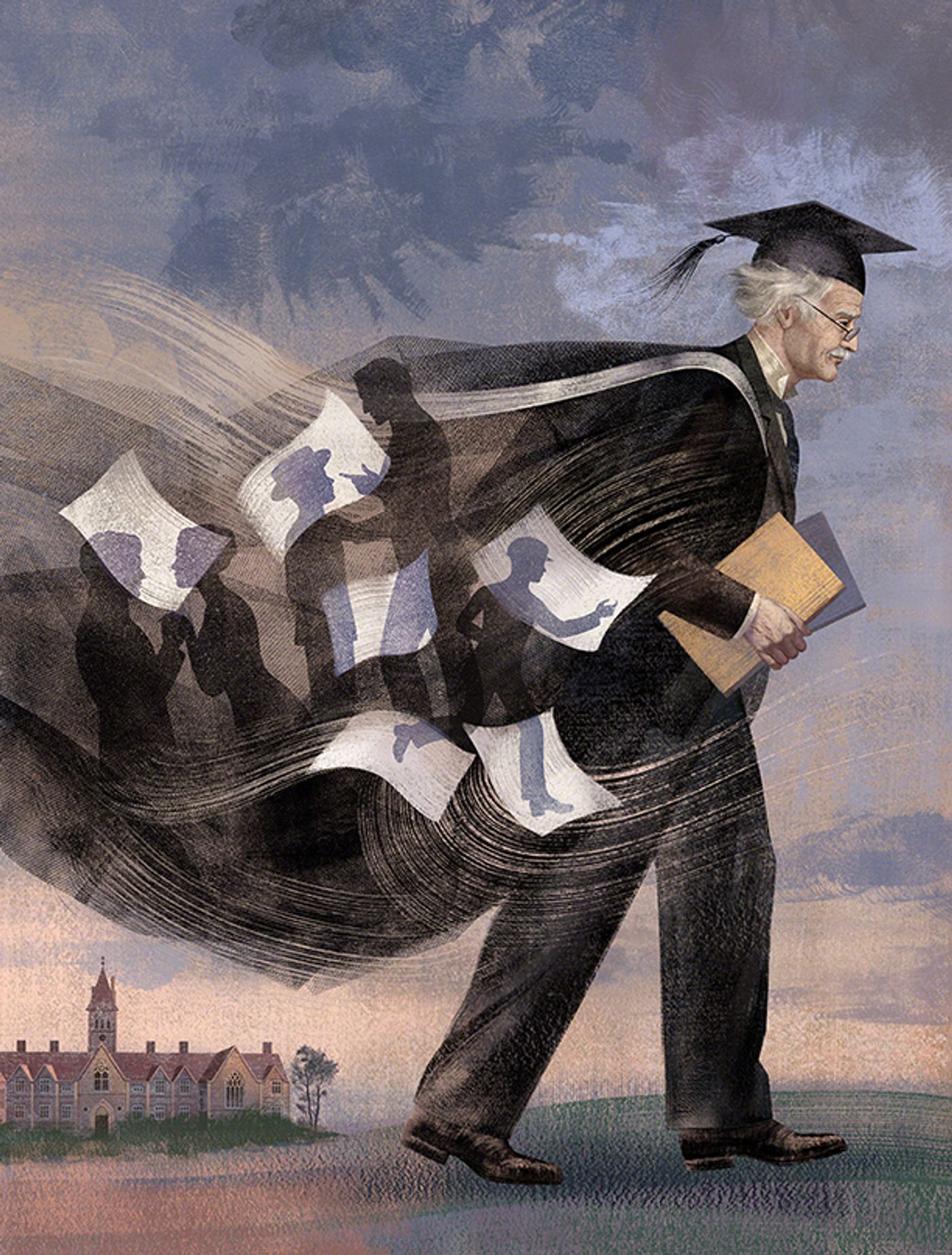Operas By Gordon Getty Out Now from Pentatone

On July 20th, 2020, composer Gordon Getty's new opera Goodbye, Mr. Chips would have had its world premiere at Festival Napa Valley. But like so many other events, it became a casualty of COVID.
The opera, based on James Hilton's classic novella Goodbye, Mr. Chips relates the story of the English schoolmaster Mr. Chipping, affectionately known to his students and colleagues as "Mr. Chips."
Set at Brookfield, "a good public school of the second rate" in Eastern England, the story follows Chips from his first days at the boarding school in 1870, through his marriage to the woman who will change him forever, to the rapid changes of the turn of the century and the outbreak of World War I.
The premiere of Getty's Goodbye, Mr. Chips is rescheduled for next summer during Festival Napa Valley's 15th Anniversary celebration. In the meantime, you are invited to revisit the operas of Gordon Getty from your home: Plump Jack, Usher House and The Canterville Ghost, all released on the PENTATONE label.
"Falstaff is all the world," Gordon Getty said about the title character of his opera, Plump Jack. "We must meet him at the top of his game: outwitting his arresters, winning the crowd, pulling the Chief Justice's beard and borrowing another ten pounds for good measure. His next scene at Gad's Hill is the endearing opposite. Here Falstaff is flustered, flummoxed and apoplectic as Hal and Boy play their tricks on him...It is at Gad's Hill that we love Falstaff most.
"Love him we must," Mr. Getty continues, "since all who know him do. He is mourned in the end as much as Hamlet or Brutus or Lear. 'Falstaff, he is dead,' says Pistol, 'and we must yearn therefore.' 'He's in Arthur's bosom,' says Hostess, even though she never saw a farthing back from him. Bardolph adds the most beautiful tribute of all: 'Would I were with him, wheresome'er he is, either in heaven or in hell.'"
Gordon Getty developed this opera over a period of three decades, focusing on the character of Falstaff from Shakespeare's history plays, Henry IV Parts 1 and 2 and Henry V.
The CD features the Munich Radio Orchestra and Bavarian Radio Chorus conducted by Ulf Schirmer, with singers Melody Moore, Susanne Mentzer, Nikolai Schukoff, Lester Lynch, Christopher Robertson, Robert Breault, Nathaniel Webster, Diana Kehrig, Bruce Rameker and Chester Patton.
Usher House, with a libretto by the composer after Edgar Allan Poe's The Fall of the House of Usher, features conductor Lawrence Foster leading the Orquestra Gulbenkian, with singers Christian Elsner, Etienne Dupuis, Phillip Ens, Lisa Delan, and special guest actor Benedict Cumberbatch. Poe's quintessential gothic tale loosely serves as the basis for Gordon Getty's opera.
As the composer explains, "I found myself taking liberties. To start, I have made Poe himself the narrator who lives to tell the tale. More radically, I have conceived him and the doomed siblings as types of an antebellum warmth and gallantry which hardly exist anywhere in the prose of the real Poe, and must be counter to his purposes here. I have added other gothic staples - forbidden knowledge, a Faustian pact, ghostly ancestors - and have shifted all into a tale of good and evil and redemption. Good means Poe and the siblings, evil means Primus and the ancestors, and Madeline becomes the agent of redemption."
The Canterville Ghost, whose libretto is also by the composer, is based on the 1887 short story of the same name by Oscar Wilde. In Wilde's story, an American family moves into an English castle inhabited by a centuries-old ghost who ultimately ends up terrorized by the very family he is trying to haunt.
Mr. Getty states: "The dos and don'ts of romantic comedy are pretty much eternal. In The Canterville Ghost Wilde has given us, in short story form, one such romantic comedy of unique beauty and genius, though with heartbreak and redemption along the way. We laugh and cry, and are enriched. I added music, and some words, with the same intention.
"All of its characters who actually sing are meant as endearing. The Otises and Sir Simon are sent up, but we must want to hug them all. Virginia sees most deeply, gets the ideas and makes things happen. Sir Simon would still be lugging his chains but for her. The girl in a romantic comedy must make the audience want to protect her, all the more so for her spunk and moxie.
"Stage and page have different needs. For my opera, Sir Simon's murder of his wife, three centuries before, and his breezy justification of it to Virginia, would grate against the wholesome and family-friendly theme. The libretto, like the 1944 movie with Charles Laughton, changes this detail. The bloodstain is also relocated from the floor to the armor, so that the audience can see it. Also Canterville and Cheshire are given more continuous roles, Washington Otis is left out, and Mrs. Umney is seen but not heard. These changes reflect no critique of Wilde."
The CD features the Gewandhaus Orchestra conducted by Matthias Foremny, with singers Alexandra Hutton, Jean Broekhuizen, Jonathan Michie, Timothy Oliver, Anooshah Golesorkhi, Matthew Treviño, Denise Wernly and Rachel Marie Hauge.

Videos

